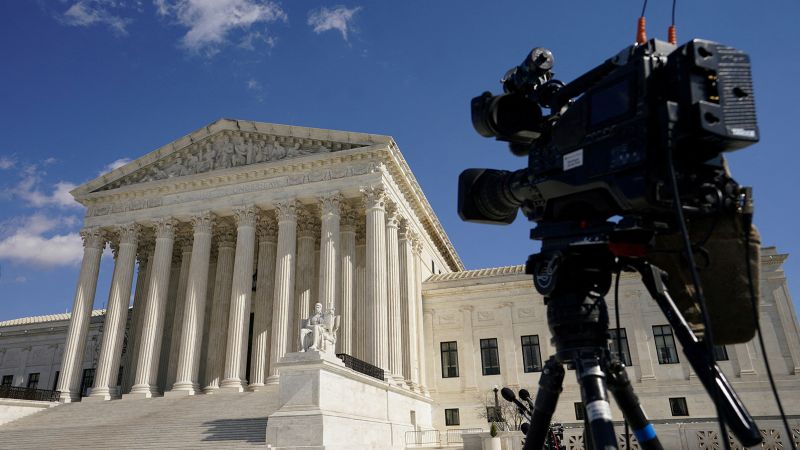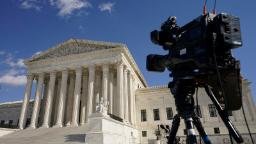

CNN
—
The Supreme Court said Monday that it will consider whether the First Amendment protects social media users from being blocked from commenting on the personal pages that government officials use to communicate actions related to their duties.
The justices said they were taking up two cases concerning the question: one lawsuit brought against local school district officials in California and another lawsuit against a city manager in Michigan.
Appeals courts have set forth different tests for determining whether blocking a social media user from commenting on a government official’s personal social media page amounts to an unconstitutional state action restricting speech in a public forum.
The court will be weighing in on the question after previously dismissing as moot a case concerning former President Donald Trump’s move to block Twitter users who were criticizing him and his policies.
The case will be heard next term.
In the California case, O’Connor-Ratcliff v. Garnier, two local school district officials are pressing the justices to reverse an appellate ruling that said they violated the First Amendment by blocking constituents from posting on their personal social media pages, which the school district officials also use to communicate updates related to their jobs.
Their opponents, parents of students in the local district, argue that the First Amendment – and its protections barring government action against speech in public forums based on the speech’s viewpoint – should apply to the comments by the constituents posted to the officials’ social media pages.
The school officials noted in their petition with the Supreme Court that even though they used their personal accounts to post content related to their school district duties, their social media pages were not created in conjunction with their jobs and the school district has no control over their personal accounts.
They also argued that their reasons for blocking the commenters were content-neutral and based on the repetitive nature of the comments.
The Michigan case, Lindke v. Freed, was brought to the Supreme Court by a resident of Port Huron, Michigan, who had been blocked from commenting on a city manager’s personal Facebook page. The city manager was using his personal page to post updates about the city’s response to Covid-19.
The resident seeks the reversal of an appellate ruling that rejected his First Amendment claims and that found that the city manager was not engaging in a state action when he blocked the constituent from commenting on his Facebook page. The appeals court reached that conclusion because the Facebook page was connected to the city manager’s personal account, rather than operated by the office of city manager.
The two cases presented a so-called circuit split on when the First Amendment prevents a government official from blocking social media users from commenting on their personal pages.
In the case arising from Michigan, the 6th US Circuit Court of Appeals said that the block function was unconstitutional only if the function is used as part of the page owner’s official duties or if the official’s governmental duties required him to operate the social media page.
The 9th US Circuit Court of Appeals, in the California case, took a more comprehensive view. It said that a government official’s personal social media page could be considered a public forum – and covered by the First Amendment’s prohibitions against certain state action restricting public speech – if the page owner was using the page to communicate about their official duties.
This story has been updated with additional details.
